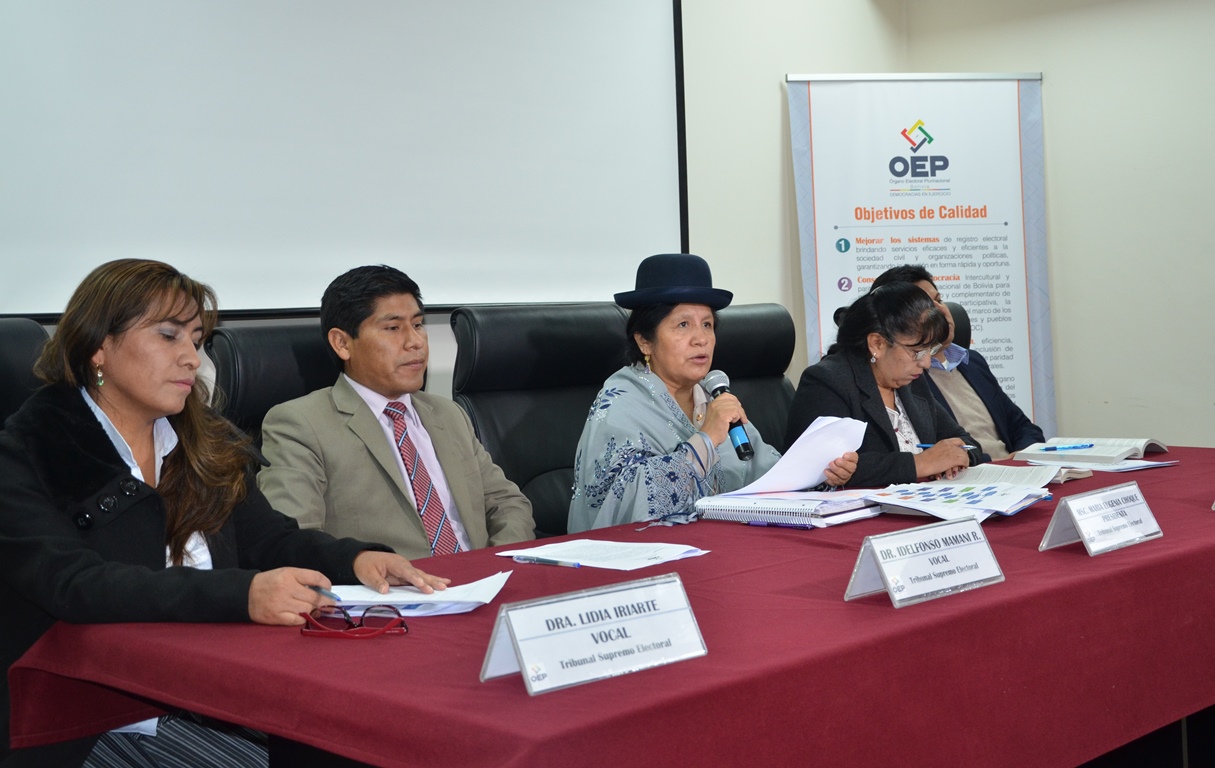

IFES maintains its commitment to the development and strengthening of the Guatemalan electoral system and desires to continue collaborating with the TSE throughout the electoral cycle. In 2021, IFES’ Electoral Governance and Reforms Project was extended for an extra year to support the TSE in advocating for new reforms of the law and of internal TSE processes. The IFES Guatemala team has since supported the TSE in national elections and referendums and between electoral cycles to improve processes on a range of topics, including out-of-country voting, participation of young people and people with disabilities and prevention of electoral conflict. These units drew from best practices of regional election management bodies to improve the Guatemalan electoral system. IFES has worked with the TSE to establish a Control, Oversight and Accountability Unit and a Media Monitoring Unit within the electoral management body to allow for more transparent and accountable electoral processes. Building on its long-term partnership with the TSE, IFES committed its support to the implementation of the most recent reforms to the Law on Elections and Political Parties ( Ley Electoral y de Partidos Politicos), approved in 2016. This ongoing program aims to improve governance within Guatemala’s key electoral institutions and increase civic participation. El Tribunal Supremo Electoral es la mxima autoridad en materia electoral. In 2017, IFES and the Consortium for Elections and Political Process Strengthening (CEPPS) began work on the Electoral Governance and Reforms Project, funded by the United States Agency for International Development. Membership Organizations Guatemala 410 Employees. IFES is helping Guatemala’s main election management body, the Supreme Electoral Tribunal (Tribunal Supremo Electoral, TSE), strengthen its systems and procedures in the areas of political finance oversight, strategic communications, civic and voter education, elections volunteers ‘networking, electoral conflict prevention, inclusion of peoples with disabilities, as well as facilitating national and regional dialogues with civil society stakeholders’, to strengthen social inclusion and to promote transparent and peaceful elections. In addition to organizing elections and supervising the activity of political organizations, the law applies to specific cases and resolves disputes in the electoral field, acting as a second instance, when it meets the resolutions of the Citizens' Registry, which are subject to its revision, presenting an appeal for annulment.Guatemala’s 2023 general elections will soon determine the direction of this country that has made unprecedented progress in strengthening its democracy over the last two decades, but still finds itself hindered by organized crime, corruption, and social inequality. The Constitution and the Electoral Law assign to the Supreme Electoral Tribunal, Registry of Citizens and others of its organs, to exercise with exclusive functional independence the electoral jurisdiction, that is, the power to administer justice in electoral matters. However, if it does not, the Congress of the Republic is authorized to do so. It attempts to organize them properly to make the votes cast by the citizenship transparent. This institution has the power to hold the elections for the office of President of the Republic and Vice President of the Republic, for the positions of Deputies to the Congress of the Republic and the Central American Parliament (as of the general elections of 2015), which it will be every four years, and popular consultation according to article 173 of the Constitution and the Electoral Constitutional Law. It is governed by the Electoral and Political Parties Law, Decree 1-85 of the National Constituent Assembly. It is an independent constitutional body of political control, and therefore it is not subordinated to any organism of the State.

The Supreme Electoral Tribunal (officially: Supreme Electoral Tribunal of the Republic of Guatemala) is the highest authority in electoral matters.


 0 kommentar(er)
0 kommentar(er)
